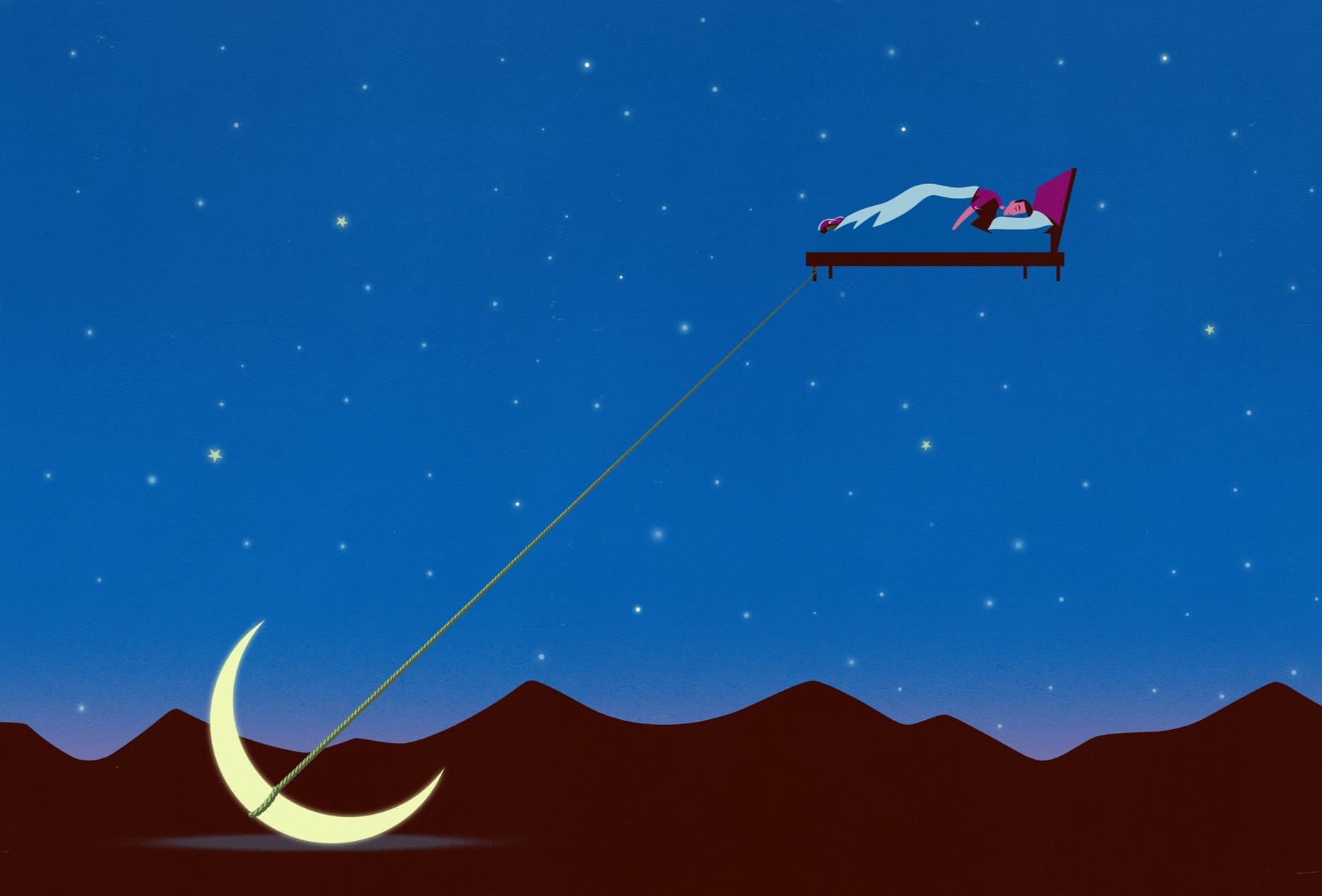Learn to Sleep on Demand
Coaching
If falling asleep quickly is not an ability that you've been blessed with, know that it's a learnable skill—and one that many elite athletes "train" for. Here's how they do it, and how you can too.

"And … sleep!" If you've ever been jealous of a friend's, sibling's or fellow passenger's ability to magically fall asleep in seconds, it's time to stop silently cursing them. Because, drum roll, please: New research indicates you can become more like them.
In a recent study, elite athletes fell asleep for a mid-afternoon nap more quickly than sub-elite and non-athletes did—even though they were no sleepier and had slept just as much as the other groups did the night before. "It suggests that they have this superior ability to sleep on demand", says Luke Gupta, PhD, the senior physiologist and lead sleep scientist at the English Institute of Sport, who co-authored the study. And one of his theories around this "sleepability" is that the elite athletes trained for it.
What Affects Your Sleepability
Your ability to fall asleep is likely partly genetic, says Iuliana Hartescu, PhD, a lecturer in psychology at the Loughborough University School of Sport, Exercise and Health Sciences. It's also partly environmental: The longer you're awake, the more your body (and brain) wants to conk out. And it's partly educational. "From infancy onwards, we learn how and when to fall asleep", says Hartescu. Actions like brushing your teeth, turning off the lights and assuming your preferred horizontal position are "unconscious rituals" that cue you for, well, unconsciousness.
You could, however, develop habits as you grow up that can condition you to become a "good" sleeper—someone who can pass out anywhere, like in the passenger seat of a car—or a "bad" one who regularly struggles to drift off in their own bed, says Hartescu.
You could, however, develop habits as you grow up that can condition you to become a "good" sleeper—someone who can pass out anywhere, like in the passenger seat of a car—or a "bad" one who regularly struggles to drift off in their own bed.
Iuliana Hartescu
PhD, Lecturer in Psychology at the Loughborough University School of Sport, Exercise and Health Sciences.

How to Become More Sleepable
To be clear, not all elite athletes are good sleepers. A 2017 review Gupta co-authored found that many of them deal with a ton of sleep issues, especially right around competitions, due to the anticipation of performing and difficulty winding down afterwards. They also might not sleep well because of travel, packed schedules and workouts high in intensity or volume. Similarly, you might snooze peacefully most nights, but when you have an important exam or meeting coming up, or you're in a hotel room or hopped up on sugar, you could get thrown off too.
What sets apart the great nappers in Gupta's most recent study, he believes, is the skills they've acquired via practice and consistency. Their sleepability is likely the result of intentional habits that anyone can steal, like these:
1. Wait for the right moment.
Going to bed early in order to cash in on more sleep after a streak of restless nights can actually work against you. You could end up in a sleep-depriving spiral of negative "Why can't I pass out?" thoughts, whereas if you just stayed up a little later, your body's need to power down would naturally kick in, says Gupta. In short, fatigue is different from sleepiness, and you want to wait for the latter to hit before you crawl into bed. Not sure if you're there? Your body tells you (heavy eyelids, non-stop yawning), not the other way around.
2. Turn off your overactive mind.
Arousal—as in preoccupying thoughts, not the sexy kind—can prevent you from falling asleep quickly. Gupta recommends a "worry buffer", or writing down what's worrying you, before you go to bed or when you suddenly feel stirred by an anxious thought as you're finally drifting off. That way, you can park it and have one less thing, or a whole list's worth, to think about.
3. Bring something familiar to foreign places. Travel—even just to your parents' house—can cause initial sleep disruption, or what researchers call "the first-night effect", because you're in an environment that's not your own. Eventually, your body should adapt to the change. But to help your sleepability from the beginning, pack your own pillowcase or a few personal items from your bedroom, like a photo (as in a real one; looking at pictures on your phone doesn't count), says Gupta. Properly unpacking instead of living out of your suitcase can also help you "own the space", he says, so you can feel more comfortable, and thus more primed to conk out, faster.
4. Lie back and relax.
Sleep isn't like conventional training or nutrition: The more you actively force yourself asleep, the less likely you'll be able to get there, says Gupta. Conversely, trying to stay awake, by repeatedly telling yourself to do so, or by staring at a fixed point on the ceiling, can actually help you drift off. This so-called "paradoxical intention" can be explained by the fact that sleep is passive. By not trying to do it, you're more likely to let it happen.
These tips can help you have better nights, but they won't help you overnight. Gupta recommends practising them nightly for a few weeks to notice a meaningful difference. Who knows? You just may become the envy of your friends and family.
Take It Further
For more expert-backed guidance on recovery, as well as mindset, movement, nutrition and sleep, check out the Nike Training Club App.
Take It Further
For more expert-backed guidance on recovery, as well as mindset, movement, nutrition and sleep, check out the Nike Training Club App.